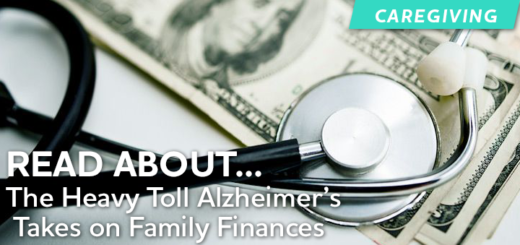Resources for African American Individuals and Families
In recognition of Black History Month, I asked our African American Outreach Specialist Craig Wingate to talk about Alzheimer’s Association resources and information specifically for the African American community. Here is what he shared with me:
 Not too many people know that African Americans are two times more likely to develop Alzheimer’s disease. African American readers are probably saying to themselves, “Oh great, another disease we’re more likely to get.” So what now? Now is the time to start having conversations about this debilitating and fatal disease that robs individuals of their cognitive abilities. So many families see the symptoms (i.e. Mom is repeatedly asking the same questions, Dad can’t seem to pay his bills anymore, Mrs. Jean just gave away her social security check to another telemarketer), but ignore them or label them as “senior moments.”
Not too many people know that African Americans are two times more likely to develop Alzheimer’s disease. African American readers are probably saying to themselves, “Oh great, another disease we’re more likely to get.” So what now? Now is the time to start having conversations about this debilitating and fatal disease that robs individuals of their cognitive abilities. So many families see the symptoms (i.e. Mom is repeatedly asking the same questions, Dad can’t seem to pay his bills anymore, Mrs. Jean just gave away her social security check to another telemarketer), but ignore them or label them as “senior moments.”
Alzheimer’s Resources for the African American community
African Americans and Alzheimer’s Disease
Know the 10 Warning Signs of Alzheimer’s
Staying Strong: Stress Release for Caregivers
African Americans and Alzheimer’s: The Silent Epidemic
An African American Clergy Guide
Alzheimer’s Association Facts & Figures: A Special Report on Race and Ethnicity
Here are a few things you can do which may reduce your risk for developing Alzheimer’s disease and maintain good overall health.
1. Your best bet: Physical exercise
The first thing that you can do is exercise. Exercise has been shown to play a significant role in reducing your risk for developing Alzheimer’s and other diseases such as Diabetes and Heart Disease, two diseases that actually increase your risk of developing Alzheimer’s disease. The exercise you choose to do should be something you enjoy (i.e. dancing, yoga, gardening, etc.). Otherwise, your desire to exercise on a daily basis might wane over time. You don’t have to exercise for hours. Fifteen to 30 minutes is fine. Getting your heart rate up and breaking a sweat is what counts.
2. Adopt a Mediterranean-influenced diet
The second thing you can do that may reduce your risk is to eat a Mediterranean-influenced diet. A Mediterranean diet consists of foods that not only maintain heart health, but also protect brain cells. Well what does that mean exactly? This means more:
- foods that are low in saturated fats
- whole grain foods, such as whole wheat bread or whole wheat pasta
- dark-skinned fruits and vegetables that are high in antioxidants, such as spinach, eggplant, cherries and blueberries
- beans, legumes, some nuts such as almonds, pecans and walnuts
- cooking with olive oil
- baked, boiled or grilled cold water fish or chicken, turkey or other poultry
These are just a few foods that can be a part of your healthy diet. Your primary care physician or a dietician may have even more options for you.
3. Challenge your brain: Try something new
In addition to exercising and eating healthy foods, keeping your brain active may reduce your risk for developing Alzheimer’s disease. Things that you can do to keep your brain active include word games, reading something new (i.e. daily newspaper) every day, taking a new class, or learning a new hobby, making subtle changes in daily routines (i.e. taking a different route home), or anything else that you find mentally challenging and enjoyable.
For more information about Alzheimer’s disease and how to reduce your risk, please visit web site at www.alz.org or call our 24/7 Help Line 1-800-272-3900 any time, day or night. We are here to help you and your loved ones.


















Hello! I know this is kind of off topic but I was
wondering if you knew where I could locate a captcha plugin for my comment form?
I’m using the same blog platform as yours and I’m having trouble finding one?
Thanks a lot!